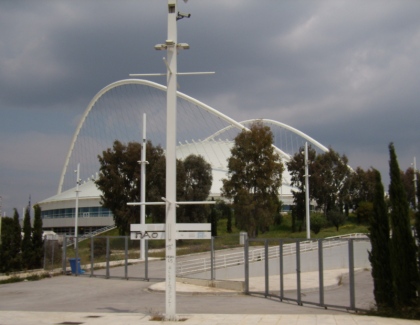
Ivan Kolev
Athens won the challenge to prepare and organize the 2004 Olympic Games but after that lost huge opportunities for the use of the created infrastructure. This decision was reached by the participants of the held conference in the Greek Technical Chamber, which hosted representatives from Barcelona and Beijing. During the preparation for the event, whole Greece and especially Athens went through a construction boom. Thanks to the any investments, the capital gained a rich modern infrastructure.
The global event gave a big push to the transportation industry – build were the new high-tech airport “Elefterios Venizelos,” the new metro, the new railway connecting the suburbs with the center, the new tram line and a wholly new highway. All those improvements brought to lowering the pollution and increasing the economic growth. Chasing time, the construction teams built many stadiums and sports facilities.
Today, Greeks remember this period with pride and nostalgia. For them, hosting the 2004 Olympic Games was a just compensation for the 1996 Olympic Games in Atlanta (100th anniversary of the modern Olympics). However, Greece had to overcome the huge for the country expenses, which officially account for ?11.2 billion but probably they were more. Only the security measures cost ?1 billion to the Greek tax payer.
The expectations of Athens to become one of the leading tourist destinations after the Olympics did not come true even though this was exactly what happened to Barcelona after the 1992 Olympics. During the 90’s, the Catalonian capital was 13th among the European tourist destinations and after the Olympics it became 3rd – it is still holding its position.
The secret of the Catalonian capital’s success was the five kilometer green belt around the sea with an area of 49 000 Ares, which was made before the Olympics. The opportunity for Athens to become a greener city existed but it was lost. A big part of the coast from the Faliro suburb until Glyfada is still enclosed (for five years!) and is off-limits for the Attika citizens. During the pre-Olympics period there were talks about the forestation of 600 000 Acres open spaces – planting 280 000 trees and 12 million plants. Based on official reports, we found out that only 150 000 Acres have been planted, out of which 50 000 around Olympic facilities and today they do not exist.
Finally, in 2009 there is less than a square meter of green area per Athenian and this puts the capital at the bottom of the European capitals’ list. Unused are also the areas around the Olympic stadium which remain closed for tourists. The systems for fire control, which were bought in 2004, remain in warehouses and were not even used during the Parnitha and Peloponnese fires. This picture was painted by the spokesmen of the conference for the effect of the Olympics.
“We lost precious time during the post-Olympics period and as a result many of the facilities right now are abandoned and destroyed,” said Spiros Kaprolos, chairman of the Greek Olympic Committee, who insists for the “retrieval of lost opportunities, with courage, imagination and long-term planning.” The manager of Attika region Yannis Sgouros noted that “sports sights valued for about ?2.2 billion do not remind of the Olympic Games.” According to him, the games were perfect but good opportunities were lost.